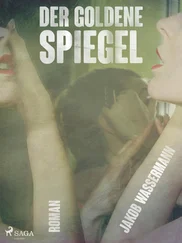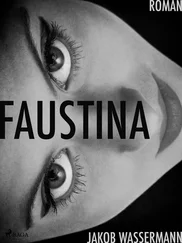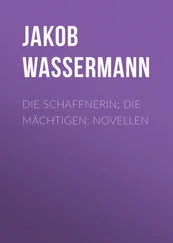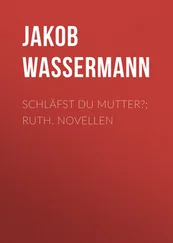The seeming tranquillity that Bettina and I enjoyed early on in our marriage glossed over the oppressive obligations with which it had been bought. In order to meet them, to finance our own lives and the payments to the Dutchman and to my friend who had helped me to acquire the Buchegger estate, not to mention taxes, I had to earn a vast sum every year; and although, by some freak of fortune and a delirium of creative work, I even managed to top that for the first couple of years, it wasn’t long before I saw myself under pressure and was forced to take out a considerable loan at extortionate rates of interest.
Since my income at the beginning seemed able to keep step with our outgoings, I got into something of the mood of a gambler, trusting to luck, risking ever higher stakes; or of a man who is so deeply indebted, and has given out so many promissory notes that in his life he will have nothing to do with economy of any kind, remains oblivious to rising consumption and greets each inner prompting to prudence with anger and contempt. So I expanded my lifestyle, I ran a household, added to my library, bought a car and took Bettina abroad. The all-too-evident result was that Ganna, who of course remained minutely informed of all of this, was confirmed in the belief that I was in possession of vast means, that she had been crudely deceived and practically criminally deprived of the possibility of securing her fair share by the divorce agreement.
My relationship to money at the time could perhaps best be described by the paradox ‘selfish indifference’. Like anyone who has climbed out of poverty, I was devoted to the pleasures and advantages conferred by money; but not only did I not love money itself, I despised it. Which is to say, I despised it when I had it and couldn’t imagine what it must be like not to have it. I had never been avaricious, but neither had I been carefree. Without my being by nature a lover of luxury, a certain dull sensuality in things I had become accustomed to made it exceedingly difficult for me to do without.
With Bettina it was different. She neither loved nor despised money. To her balanced sense, it was a means to satisfy a few basic needs. Sometimes, admittedly, for luxuries as well, inasmuch as they were presented to her in terms of aesthetic value — that classical simplicity that causes more heart-searching and trouble than any pomp. In the years in which I didn’t allow her to see into my finances and she — partly so as not to burden me, partly awed by my creative furor — declined to question me or rein me in, she gave herself up with a secret reservation, just as I did, to the illusion of an overflowing horn of plenty. She decorated herself, she decorated our home, decorated the garden and was happy that she could surround herself with beautiful things, which she chose with discernment, because she has the most incorruptible eyes of anyone in the world. To have visitors made her very happy, and for the most part it was old friends whom we had to stay; she was loyal and devoted to them. Never was she immodest, much less rapacious in her wishes. She didn’t care about having possessions. To know that the beautiful thing was there, to be communed with and to make her richer inside, not to plume herself with it — that was her style of ownership; and in any case the two things that remained dearest to her were music and our little Caspar Hauser.
Till one day these brilliant dreams of beauty, peace and art burst, and a baleful reality eyed us like a hyena that had crept out from under the bed.
GANNA IN PREPARATION
And Ganna? The severing of the formal bonds between us failed to persuade her that privately, in our hearts, we were now separated as well. The mood in which she returned to her now barren life was glum. It was as though the lights had gone out and all the visitors suddenly disappeared. A hush descended. Suddenly it was dark. She was all alone. Yes, there were the children. But apart from Doris, they were grown up and didn’t need their mother, not in the sense Ganna understood: as provider, comforter, protector. They lived in the baffling world of people. They had opinions, experiences, friends and who knew what attachments.
And, like someone clearing out an old flat before moving into a new one, she ransacked wardrobes, boxes and chests of drawers and pulled out all the memories and souvenirs she had of me, old photographs, gifts from the early years of our marriage. She couldn’t get enough of these things. She used them to remind herself how happy she had been then, when she received them. In her imagination it was a happiness beyond computation — such as she had never really felt. She leafed through her girlhood diaries and refused to accept that things had turned out so differently from the way she had dreamed they would. She made the upsetting discovery that dreams lie. Admittedly, this only happened in brief little intervals of consciousness, as when a persistent beam of light forces its way through a shuttered window. She hurried to seal it up again.
Her chief resource was the letters I had written to her in those first ten years. Greedily she supped full of them. She put them in chronological order and numbered them. So as to make them even more strongly present to her imagination than by merely reading them, she copied them out by hand, one after the other. When she was finally finished, weeks later, she took the copies to a stenotypist and had the whole collection typed up in several copies. One of which, nicely bound, went to me. I didn’t see what I was supposed to do with it. The hidden purpose of the exercise was presumably to tell posterity the truth about the relationship between Ganna and Alexander Herzog. Posterity was a sort of fire insurance firm for her.
Every day was like a holey curtain. Through each hole, a piece of the past peeped through. What could she do, to fill up the dreary days? There were no files, no documents, no nail-biting negotiations any more. Sometimes she took down the books of her favourite poets and philosophers. It was a hollow gesture. A real counter-factual as-if. There is pleasure to be had in as-if. To its devotees it allows a rush of seeming existence after periods of feeling dead. Over the summer she read everything I had written, in sequence; and when we met at the end of that time claimed, half with feigned regret, half with unconstrained satisfaction, that the books I had written while I was living with her were incomparably better than those I wrote since falling in with Bettina. She was on the point of saying: I always knew God would punish you and He has. The old formula. The conversation took place one fine evening in the garden of her house. She was wrapped in numerous blankets when I arrived, had made herself comfortable on her chaise-longue and looked up into the sky where, one by one, the stars popped out. I asked myself: what is she looking for up there? She was capable of lying there for hours on end, looking up at the sky, almost like a person of faith, all the while foolish and resentful notions crowded her mind. What does she look to the stars for? What was she wanting, craving, overarched by the eternal canopy?
There was one thing she couldn’t be reconciled to, and she gnawed at it like a poisonous wound. I had promised her my friendship, had sworn to cherish her, if only she would agree to a divorce. Well, now she was waiting to be cherished. But since I gave no appearance of being ready to do so, an anxious disappointment came up in her. Whatever time I devoted to her, it wasn’t enough. I talked about all kinds of things, in her view, only not about friendship. When I got up to go, she asked me with a troubled expression why I didn’t spend the whole day with her. When I had spent the whole day with her, she wanted me to keep tomorrow for her as well. Sometimes I had the car parked outside the house. She smiled and passed remarks that were intended to show how free from jealousy she was, but that on the contrary betrayed the fact that she was consumed with regret. She regretted that she had agreed to the divorce, regretted it with every thought she had, day and night; bitterly she gave me to understand that she felt she had been outwitted and ambushed, by Hornschuch and by Bettina. The notion that I was gadding around the world with Bettina, while she sat there in her own four walls, mocked and betrayed to her scorn, almost drove her mad.
Читать дальше
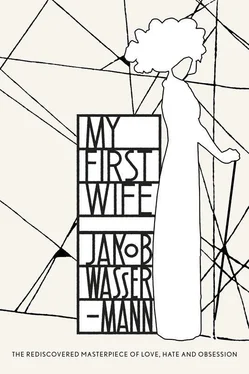




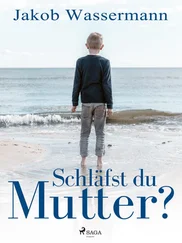

![Jakob Wassermann - Issue Does Not Exist],errors:{](/books/585068/jakob-wassermann-issue-does-not-exist-errors-thumb.webp)
